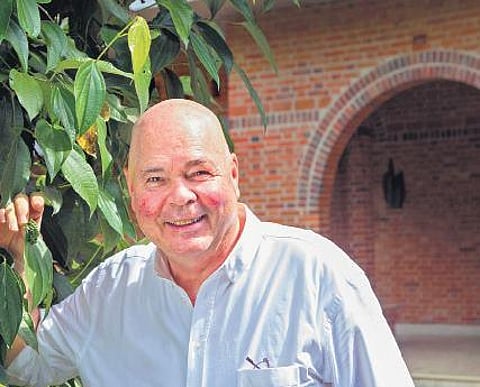

KOCHI: Kerala’s history with farming and spices go way back. The Muziris port is said to have catered flavours and condiments to western nations since the 15th century. When Rodolf Buhler, a German organic farmer, came down to Kerala 14 years ago as part of Ecoland.ro—the International organic prwwoject, little did he know he was going to fall in love with God’s Own Country.
The campaign that Buhler was a part of, named Seeds of Hope, majorly focuses on the development of rural sectors around the world. “It is important to promote sustainable development in rural areas since farmers need to be equipped to fulfil their roles in society. Small income and low selling price will no longer help in their development,” he says.
Buhler is now spearheading ‘Ark of pepper’, a new project set up in Kerala under Ecoland. The scheme aims to integrate and support local spice farmers. Nearly 18,000 local farmers from the Malabar coast are working for this project to restore the lost indigenous species of spices, including pepper. The Periyar Foundation, a governmental conservative organisation founded in 2004, collects and grades the pepper dried by tribal families as a part of people’s participatory management programme. The programme aims to empower tribal communities and make them aware of forest conservation.
“The indigenous black pepper from Kerala is one of the best found in the world, but over the years it has been lost in commercial trade. It has been two years since we started the mission to replant and regrow them in the Malabar region, including Wayanad, Thekkadi and Kumily,” says Buhler“Our main idea is to collect the local varieties and export them to European countries, where farmers get double the local price. The new systems effectively ensures a regular income for families,” he adds.
Farmers have found nearly 42 varieties of spices to replant. These include the once widely cultivated Kalluvalli, Jeerakamundi, Cherumaniyan, and Karimunda, among others. Farmers say that these varieties are more tolerant to dry weather and water scarcity than their hybrid counterparts. Plucking, drying and sorting of pepper in Kumily and other forest areas are done organically as a family activity. This ensures livelihood to local families, as well as the quality and authenticity of the spices.